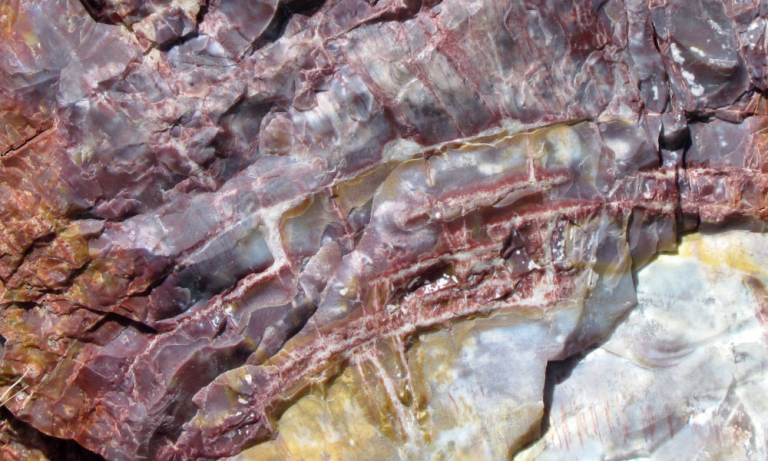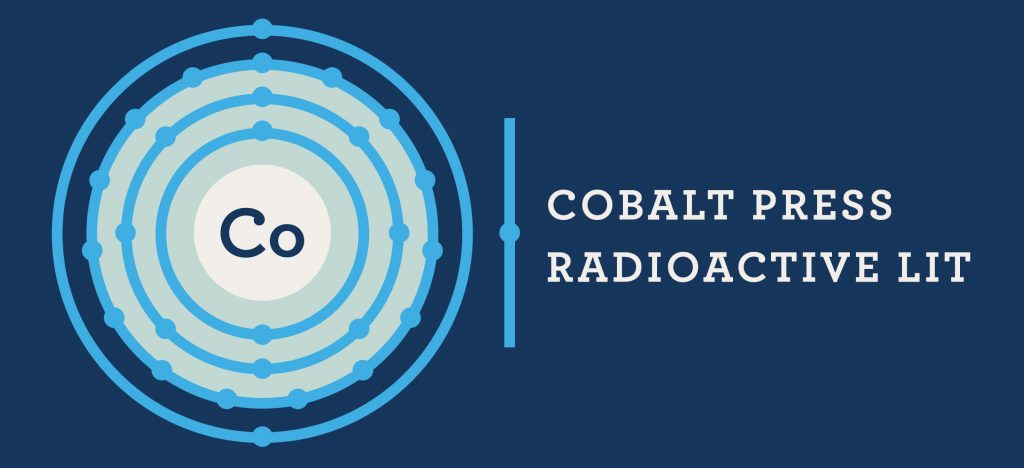IN THE PETRIFIED FOREST
My husband and I are turning circles in a parking lot. Circles and more circles. Very slowly.
We’ve been doing this for what seems like forever. Anton is nervous, and I’m trying to calm him down.
Maybe another ten minutes, and we’ll get out on the road. Maybe.
“Hand over hand, like climbing a rope.”
Idiot, I think to myself. He’s never climbed a rope. Where would he have climbed a rope?
But maybe I’m being too sensitive. That’s the problem with cultural sensitivity. Either you’ve got too much of it or too little.
Anyway, he seems to get it: hand over hand and the car turns better, more smoothly.
“Okay. Now park between those white lines.”
“Which ones?”
“Any of them.”
He puts the car unevenly across a couple of lines.
“Back up and do it again.”
“Maybe we rest a few minutes?”
I smile over at him. “Okay. It doesn’t matter anyway. There’s nobody here.”
He turns the car off. His palms, I notice as he takes them off the steering wheel, are white and then red from pressure.
The Petrified Forest, January. It’s a windy day, and very blue. The dry grass is the color of warmth, sun on the ground, but it lies: the only warmth is in the car. We both zip our jackets to the top, we both pull our stocking caps down. Twins. The way you start to get after just a few months, no matter how far away you were born from each other. You sleep with someone, it closes a distance. Anton lights a cigarette. Smoking in a National Park feels transgressive, illegal. It makes me want to look around for a cop.
As Anton would say: “And this is your land of the free?”
His idea of freedom is “Fuck you.”
My idea, it turns out, is control. Freedom means freedom from things. Freedom from people who are not wearing seat belts flying out of their cars and killing you with their bodies. Freedom from people killing you with their cigarette smoke, freedom from people hurting you, or taking your property. Rules are there to protect freedom, I tell Anton.
“Rules protect freedom?” He cocks his head. Some people raise an eyebrow. Anton cocks his head — his imported irony. “You must wear a helmet on a motorcycle to protect freedom?”
I don’t even want to get into it.
Crystal logs so old that you can’t put your head around it. The park ranger explained it on a little hike behind the museum — but when someone starts talking about geological time, I lose my bearings. I start thinking about how one day, I’ll have been dead for 200 million years. About how this is inevitable.
All day, I’ve been pondering minerals, geological time, death. Anton, he’s been thinking about getting his driver’s license.
Different worlds. This is Maslow’s pyramid in action. This is the hierarchy of needs: Anton needs a driver’s license so he can get to work. Me, I’ve got a brilliant job and an exotic husband. I need to ponder death.
This is the selfish tip of the pyramid, worrying about your own demise in the abstract.
At the bottom of the pyramid is worrying about your own death like, now. One of the places at the bottom of the pyramid is Grozny, 1994. That’s the place Anton ran from. From there to San Francisco — the place that I also ran to. He was terrified. I was bored. But I make my boredom sound like terror. Anton makes his terror sound like boredom. Dragging on a cigarette, leaning against a wall all dark-eyed and angle-boned in a San Francisco bar he says: “My country attacked my republic to kill my nation. In the West, in English, this makes no sense. In the West, none of this matters.”
This kind of man, you fall in love with right away. Half Chechen, but Orthodox Christian. He doesn’t even speak his language. Only Russian. He’s a thing of empire, so regal you could imagine him in shoulder boards. You keep expecting to see a scabbard at his belt, the shadow of it like a tail. The smell of incense in his flame-domed church, where the priest turns his back to you, the swing of the thurible, the sense of Christ as someone mute and unreachable. . .
We walk down the trail until we are surrounded by hills, striped badland hills, delicate as mud-cakes but huge, elephant-skinned, timeless looking, stony until they crumble under your fingers. Impossible things, rivuleted by rain. Scattered everywhere around our feet are pieces of wood turned to stone.
“You’re doing really well with driving.”
“I just need practice,” he says. He’s echoing me: this is what I keep telling him. “I am nervous to make a mistake.”
Me too, I’m thinking. “Did you lock the car?” I say instead.
He turns in the theoretical direction of the car. “I think, yes.”
“But are you sure?”
He smiles. He’s picked up a piece of wood. “It is so heavy, you know. It seems heavier than stone, because you did not expect it to be so heavy. It surprises you. Because it should be wood.” He hands it to me.
“He’s right — I really want to steal the wood.”
I keep obsessing about the car. It keeps me from thinking about other things. I realize this: I clearly see my own defense mechanisms.
Back in the parking lot we sit in the car, idling, warming up. Anton is flipping through the California Driver’s Handbook, underlining things in blunted pencil, making notes in a cursive that will, I realize, always be alien to me. He starts the engine and turns the key for too long, grinding the starter, and looks sheepishly at me. The places of power — in the bed, it’s him in control. In the car, it’s me. Maybe both of these things are the way I want them to be. Where will my place of power be when he’s zipping down the road at eighty as if it was his birthright?
Under my instructions, he pulls out to the stop sign, stopping the car too quickly and with jerky little pumps, looking right and then left, the way I taught him, pulling out too sharp and running a wheel into the gravel.
You grow up in America, you don’t even realize how natural all of this is for you, like pearl diving must be in Guangdong.
The speed limit is 45, but we’re cruising along at 20, and when we go uphill it’s 15, my hand on his thigh, encouraging him to press on the gas. He does it unsteadily, gingerly. This is the other side of a man that exudes confidence. His face looks frozen in concentration. He doesn’t scan the road — his eyes are fixed on some point far off.
“Now you can enjoy the scenery too,” he says, without turning to look at me. Off in the rolling fields are these brown shapes, like buffalo on their knees, these logs turned to stone sometime when the planet was something else.
I am thinking of a snapshot of Grozny. The snapshot is of his house. This is not a house, the way you and I imagine a house. It is a big gray concrete block made of smaller gray blocks, like a set of toys for some depressed, colorless giant — an apartment building like a scarred, careless stack of blocks, each containing an apartment. But something is missing. Someone has come by and carried off a couple of floors of this building, on the right-hand side. You can see gray sky through the gray space. Just when you were starting to wonder if the picture was black-and-white, you notice strips of brightly-colored clothes hanging from windows. There are people living in this house, above and below those floors that have been punched out. Connecting this part of reality with my own is Anton’s finger, pointing at the empty space. When I remember this picture, his finger is always there, gesturing.
The part that is not there was Anton’s home. His home, but — deus ex machina — when the Russian bomb hit, there was nobody in it. Everyone was at the bazaar. So what Anton does not have is a dead mother, a dead sister. What he has is a living mother who cooks really amazing soups and lives in San Francisco. What he does have is a sister who is in her first year at UCLA, and whose boyfriend Anton hates with a Caucasian passion.
This is what I am thinking of when the white van full of boy scouts hits us. It hits us in the front right-hand corner as we are passing a turn-out. The impact deploys the air-bags, and it’s the air-bag, I think, that knocks me unconscious. The car comes to a stop, the engine automatically shut off to prevent a fire, about 50 meters from the impact.
I wake up surrounded by merit badges, neckerchiefs, Anton restraining an Eagle Scout trying to give me mouth-to-mouth. Anton has a small cut over one eye that is bleeding nastily until someone in a sash full of badges applies pressure to it. It’s a sea of protective khaki. A pot bellied man with a sunburned face keeps apologizing to us. In between apologies, he’s saying, “An ambulance is on its way,” over and over again. Above all of this is sky.
After what seems like ages of staring into all that blue and lying very still, the way Anton tells me to, I hear the approaching sirens of an ambulance. I can hear it from a long way off, in all this quiet. My ears are ringing and that and the siren sound turn everyone’s voice into a far-off mumble.
***
The break in my arm is clean and will heal quickly. None of this will even leave a scar.
We exit the hospital, my arm in a plaster cast as new and white as a Roman toga.
The car repair shop has given us a rental. It turns out that our entrance ticket to the Petrified Forest is good for another couple of days. And insurance will cover everything.
Anton shakes his head, unlocking the car from a distance with the little button on the key chain.
“I love America,” he says.
We are both of us, after all, terribly happy here.
***
Ray Nayler has lived for two decades in Russia, Central Asia, and the Caucasus. Chiefly known for his speculative fiction, he has published in many genres, from poetry to crime fiction to comics. You can find out more at raynayler.net.

